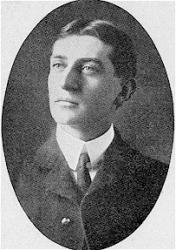Planning worship?
Check out our sister site, ZeteoSearch.org,
for 20+ additional resources related to your search.
- |
User Links
Search Results
Lilies of the Field
Author: Samuel H. Lloyd Meter: 8.8.8.8 Appears in 9 hymnals Matching Instances: 9 First Line: Behold the lilies of the field, That bloom around the Master's feet
Lilies of the Field
[Behold the lilies of the field]
Appears in 1 hymnal Matching Instances: 1 Composer and/or Arranger: J. D. Brunk Incipit: 55431 23444 44654 Used With Text: Lilies of the Field
[Behold the lilies of the field]
Behold the lilies of the field
Hymnal: Hymns and Tunes #394 (1890) Scripture: Luke 12:27 Languages: English Tune Title: BACA
Behold the lilies of the field
Lilies of the Field
Hymnal: Church and Sunday School Hymnal with Supplement #361 (1902) First Line: Behold the lilies of the field Scripture: Luke 12:27 Languages: English Tune Title: [Behold the lilies of the field]
Lilies of the Field
Behold the lilies of the field that bloom around the Master's feet
Hymnal: Songs of Pilgrimage #109 (1888)
Behold the lilies of the field that bloom around the Master's feet
William B. Bradbury

1816 - 1868 Person Name: Wm. B. Bradbury Composer of "BACA" in Hymns and Tunes William Bachelder Bradbury USA 1816-1868. Born at York, ME, he was raised on his father's farm, with rainy days spent in a shoe-shop, the custom in those days. He loved music and spent spare hours practicing any music he could find. In 1830 the family moved to Boston, where he first saw and heard an organ and piano, and other instruments. He became an organist at 15. He attended Dr. Lowell Mason's singing classes, and later sang in the Bowdoin Street church choir. Dr. Mason became a good friend. He made $100/yr playing the organ, and was still in Dr. Mason's choir. Dr. Mason gave him a chance to teach singing in Machias, ME, which he accepted. He returned to Boston the following year to marry Adra Esther Fessenden in 1838, then relocated to Saint John, New Brunswick. Where his efforts were not much appreciated, so he returned to Boston. He was offered charge of music and organ at the First Baptist Church of Brooklyn. That led to similar work at the Baptist Tabernacle, New York City, where he also started a singing class. That started singing schools in various parts of the city, and eventually resulted in music festivals, held at the Broadway Tabernacle, a prominent city event. He conducted a 1000 children choir there, which resulted in music being taught as regular study in public schools of the city. He began writing music and publishing it. In 1847 he went with his wife to Europe to study with some of the music masters in London and also Germany. He attended Mendelssohn funeral while there. He went to Switzerland before returning to the states, and upon returning, commenced teaching, conducting conventions, composing, and editing music books. In 1851, with his brother, Edward, he began manufacturring Bradbury pianos, which became popular. Also, he had a small office in one of his warehouses in New York and often went there to spend time in private devotions. As a professor, he edited 59 books of sacred and secular music, much of which he wrote. He attended the Presbyterian church in Bloomfield, NJ, for many years later in life. He contracted tuberculosis the last two years of his life.
John Perry
William B. Bradbury
J. D. Brunk

1872 - 1926 Composer of "[Behold the lilies of the field]" in Church and Sunday School Hymnal with Supplement John David Brunk born in Virginia, died in Indiana
Dianne Shapiro, from Find a Grave website (accessed 6/20/2022)
J. D. Brunk


 My Starred Hymns
My Starred Hymns


